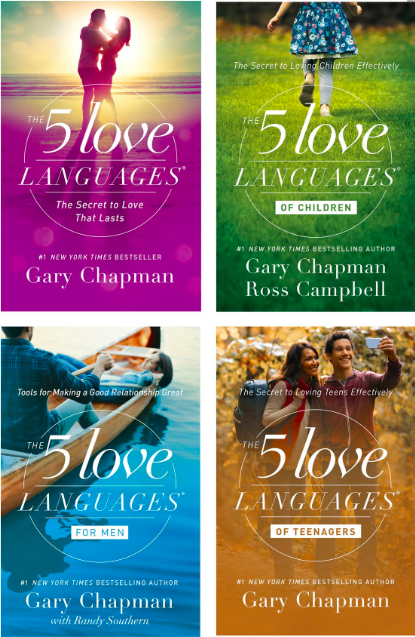Discovering the 5 love languages
For the past month, I’ve been reading Gary Chapman’s book about the “5 Love Languages,” and since finishing, my perspective on all of the relationships in my life has drastically changed… for the better.
Before we get into it, let me introduce you to the five love languages from Gary Chapman’s “5 Love Language Profiles”
- Words of Affirmation: Actions don’t always speak louder than words. If this is your love language, unsolicited compliments mean the world to you. Hearing the words, “I love you,” is important – hearing the reasons behind that love sends your spirits skyward. Insults can leave you shattered and are not easily forgotten. Kind, encouraging, and positive words are truly life-giving.
- Quality Time: In the vernacular of Quality Time, nothing says, “I love you,” like full, undivided attention. Being there for this type of person is critical, but really being there – with the TV off, fork and knife down, and all chores and tasks on standby – makes your significant other feel truly special and loved. Distractions, postponed dates, or the failure to listen can be especially hurtful. Quality Time also means sharing quality conversation and quality activities.
- Receiving Gifts: Don’t mistake this love language for materialism; the receiver of gifts thrives on the love, thoughtfulness, and effort behind the gift. If you speak this language, the perfect gift or gesture shows that you are known, you are cared for, and you are prized above whatever was sacrificed to bring the gift to you. A missed birthday, anniversary, or a hasty, thoughtless gift would be disastrous – so would the absence of everyday gestures. Gifts are visual representations of love and are treasured greatly.
- Acts of Service: Can vacuuming the floors really be an expression of love? Absolutely! Anything you do to ease the burden of responsibilities weighing on an “Acts of Service” person will speak volumes. The words he or she most wants to hear: “Let me do that for you.” Laziness, broken commitments, and making more work for them tell speakers of this language their feelings don’t matter. Finding ways to serve speaks volumes to the recipient of these acts.
- Physical Touch: A person whose primary language is Physical Touch is, not surprisingly, very touchy. Hugs, pats on the back, holding hands, and thoughtful touches on the arm, shoulder, or face – they can all be ways to show excitement, concern, care, and love. Physical presence and accessibility are crucial, while neglect or abuse can be unforgivable and destructive. Physical touch fosters a sense of security and belonging in any relationship.
Not sure what your love language is or just curious to know more about it? Take the quiz
Humans are inherently complex, so you may not fit into one category, but there are ways that people can express their love to you that will make you feel more “loved” than if they did it in a way that you don’t understand or don’t place as much value on.
Throughout this journey, I realized that my love language is quality time, and that helped me to understand a lot about myself and helped me to dissect the problems and insecurities I have in my relationships.
I’m a person that needs to spend time with the people I care about. And by time I don’t mean just sitting on our phones or watching a show or movie without speaking. I want undivided attention and real conversation. I don’t want our words to just be floating in the air, I want to understand each other and be engaged in whatever we’re doing together. Not all of my friends or family are like this, and at times I’ve wondered if someone was mad at me or if we were even that close to each other because the kind of love they were giving wasn’t the kind I wanted to receive.
Reading this book was life-changing for me because I think truly understanding yourself is the foundation of being happy with yourself and others. For the longest time, I knew how I felt but didn’t know how to express that frustration, but now I know how to communicate my feelings and how to say what I need.
The book wasn’t that long and a pretty easy read, and besides, any investment in bettering yourself is never a waste of time. It gives you prompts, asks you questions, and suggests activities for you to do to help you work with other’s love languages if it’s not your own, and helps you communicate your own needs with others.
I would recommend this book to any student or parent or any person that I know. There are so many benefits that come out of bettering your relationships with the people around you because we weren’t meant to go through things alone.
In the words of Gary Chapman, “love doesn’t erase the past, but it makes the future different.”

My name is Leila Stewart and I am a junior. I coach elementary girls volleyball, I'm the Vice President of ASA, and the co-editor of the Roundup. This...






